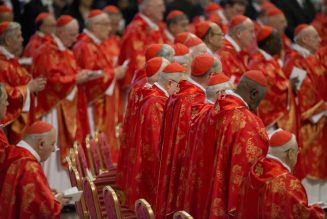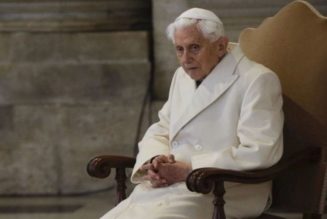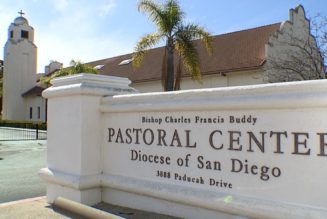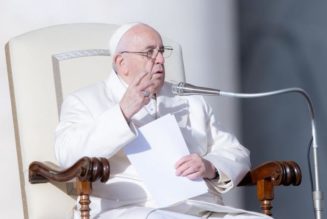
“In Veritatis splendor — which the Pontifical Academy does not note — in Veritatis splendor John Paul II does say that contraception is an intrinsically evil act, so there can be no reason or purpose for contraception. Benedict XVI gave several speeches in which he spoke about contraception, and it can’t be changed. What was true yesterday is true today.”
While there can be “legitimate discussions of how to present it or how to help people understand it, or how to help people who are in difficult situations, whether medically or even because of moral pressure,” the teaching itself is not a topic for debate, explained Petri, author of “Aquinas and the Theology of the Body” (Catholic University of America Press, 2016).
“There could be a real discussion about how to do that, but there can’t be any sort of rollback of the teaching, because it’s what’s always been taught, and that’s how Catholic theology, and Catholic doctrine, works.”
“These things aren’t really meant to be argued over Twitter,” he reflected. “It’s not the forum to sort of put these things out there.”
Petri added that “It’s not helpful to simply focus on infallibility and what is named infallible in an extraordinary way. The First Vatican Council, when it spoke about papal infallibility, was very clear that it was supposed to be an extraordinary act.”
Petri compared an infallible statement to an ecumenical council. He described it as “a very extraordinary act, and which usually only happens when the matter at issue, whether it’s a doctrinal matter or a moral matter, has become so entirely embroiled in conflict … that it requires such an extraordinary act as a pope or a council declaring something infallibly.”
“That’s not normally how Church teaching works — that’s why the ordinary magisterium is important.”
When a pope does not intend to teach infallibly, “that doesn’t mean we’re supposed to ignore what he’s teaching, or to act like his opinion is just one opinion among many,” Petri said.
“Even if he’s not intending to proclaim something infallible, especially when he’s teaching things that popes have been teaching for centuries, it has a certain weight to it.”
While one might disagree with how things are expressed, “that doesn’t mean that what he’s teaching is up for grabs,” Petri said.
“All the more so when you’re talking about a teaching which multiple popes have repeated over multiple decades. And in the case of contraception we could say centuries,” he said.
(Story continues below)
“You simply can’t say, ‘Well, Humanae vitae wasn’t declared infallible, Paul VI didn’t declare it infallible, therefore because it’s not infallible, it’s up for grabs.’ This is not a binary.”
A similar point was made in a 2019 article by Augusto Sarmiento.
Sarmiento wrote about the Congregation for the Doctrine of the Faith’s 1990 instruction on the ecclesial vocation of the theologian, which discusses various levels of magisterial statements. The article appeared in “Dizionario su Sesso, Amore e Fecondità,” edited by Father José Noriega and René and Isabelle Ecochard.
A professor at the Univerisity of Pamplona, Sarmiento noted that “the pope, with Humanae vitae, did not will to propose an extraordinary teaching of the Magisterium ex cathedra.”
To support this, he quoted from Lambruschini’s comments at the press conference presenting the encyclical: “However, it is always an authentic pronouncement, especially since it is part of the continuity of the ecclesiastical magisterium.”
Sarmiento wrote: “On the nature of the authority with which the norm of Humanae vitae is proclaimed, there is no doubt that it is part of the ordinary, universal magisterium,” and that the encyclical “is a teaching of the ordinary universal Magisterium of the Pope and of the bishops that must be considered definitive.”
Join Our Telegram Group : Salvation & Prosperity







